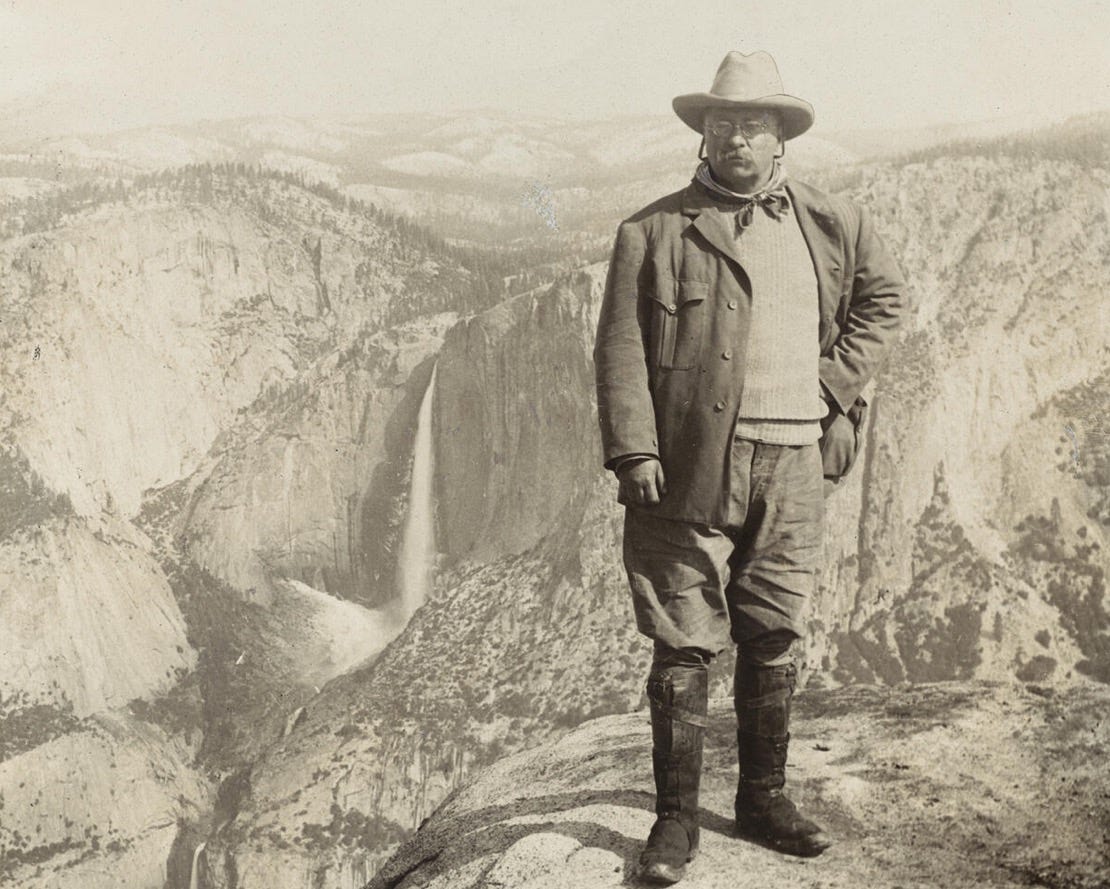The Wickedness of the Timid Good Man
How to be a good ‘Citizen in a Republic’
In a republic like ours, we bear a dual burden of responsibility. We are blessed with the freedom to significantly influence our nation, a privilege not afforded by non-republics. Yet, this blessing comes with the obligation to engage actively in the republic. When we neglect this duty of participation, the vibrant republic that is can quickly become the vibrant republic that was.
This active participation imposes a unique pressure on citizens. In non-republics, a nation’s success largely depends on the quality of its leaders. In a republic, however, it hinges on the quality of its people. Therefore, we must not only participate in our governance but also strive to be the best versions of ourselves to ensure the republic thrives. It’s an optimistic vision of humanity’s potential.
Thus, we must be a nation of good men. Simple enough, right?
Enter the “Timid Good Man”
Theodore Roosevelt, the 26th president of the United States, introduced the idea of the ‘timid good man’ in his famous “Man in the Arena” speech, where he stated,
“There is little place in active life for the timid good man. The man who is saved by weakness from robust wickedness is likewise rendered immune from robuster virtues. The good citizen in a republic must first of all be able to hold his own. He is no good citizen unless he has the ability which will make him work hard and which at need will make him fight hard.”
Roosevelt argues that true goodness requires an awareness of one’s capacity for evil. The timid good man, by avoiding decisive action, robs himself of the opportunity to engage in meaningful choices. While he may preach moral virtues from the safety of his home, what happens when his community, state, or nation is under threat? When the republic calls upon good men to defend liberty, the timid man’s cynicism does no good—on the other hand, it can perpetuate evil.
A republic demands intentional goodness. It calls for citizens who understand that real courage lies in stepping into the arena and risking judgment. The courageous man knows both victory and defeat, for he knows that he can’t know one without knowing the other. The “man in the arena” embraces the responsibility of shaping his destiny and, despite setbacks, persists in improving not only his own life but also those of his family, community, and beyond.
The Goal of a Republic
What is the goal of our republic, particularly here in the United States? Teddy Roosevelt and Abraham Lincoln would likely argue that it is to extend equal opportunity to all citizens, aligning with the inalienable rights articulated in the Declaration of Independence—the rights to “life, liberty, and the pursuit of happiness.”
Abraham Lincoln said;
“I think the authors of the Declaration of Independence intended to include all men, but that they did not mean to declare all men equal in all respects. They did not mean to say all men were equal in color, size, intellect, moral development, or social capacity. They defined with tolerable distinctness in what they did consider all men created equal—equal in certain inalienable rights, among which are life, liberty, and the pursuit of happiness. This they said, and this they meant. They did not mean to assert the obvious untruth that all were then actually enjoying that equality, or yet that they were about to confer it immediately upon them. They meant to set up a standard maxim for free society which should be familiar to all—constantly looked to, constantly labored for, and, even though never perfectly attained, constantly approximated, and thereby constantly spreading and deepening its influence, and augmenting the happiness and value of life to all people, everywhere.”
Teddy Roosevelt emphasized Lincoln’s importance of equal opportunity, stating;
“There should, so far as possible, be equal of opportunity to render service; but just so long as there is inequality of service there should and must be inequality of reward… But the reward must go to the man who does his work well; for any other course is to create a new kind of privilege, the privilege of folly and weakness; and special privilege is injustice, whatever form it takes.”
Both Roosevelt and Lincoln championed equality of opportunity while cautioning against the pursuit of equality of outcome, known today as equity. Due to the obvious and inherit inequality of input in human nature, the strive to make outputs equal for all is fundamentally flawed.
A nation that is equal in its rewards is far from equal in bestowing the rights of mankind on its people.
A good citizen of the republic must…
A) Intentionally strive for goodness - acknowledging their own capacity for evil.
B) Actively participate in the republic - refusing to be a cynic on the sidelines.
C) Understand the responsibilities of a citizen in a republic - working to promote equal opportunity for all.
If you liked this post - which was clearly inspired by Teddy Roosevelt’s ‘Citizenship in a Republic’ speech - and want to read my full summary of notes and dissection of his speech, while simultaneously pledging your support to my work. I have released my first post, for paid subscribers only, that shows my interpretation of his speech in real time. Thank you in advance for your support.
You can find that post here.




Nice post Danny! Reading it reminded me of Naval Ravikant and Joe Rogan's podcast, where they spoke about income inequality. But there is also effort inequality and people have different outcomes based on their effort.
Of course, when it comes to poverty and where someone starts out, income inequality is a little different.